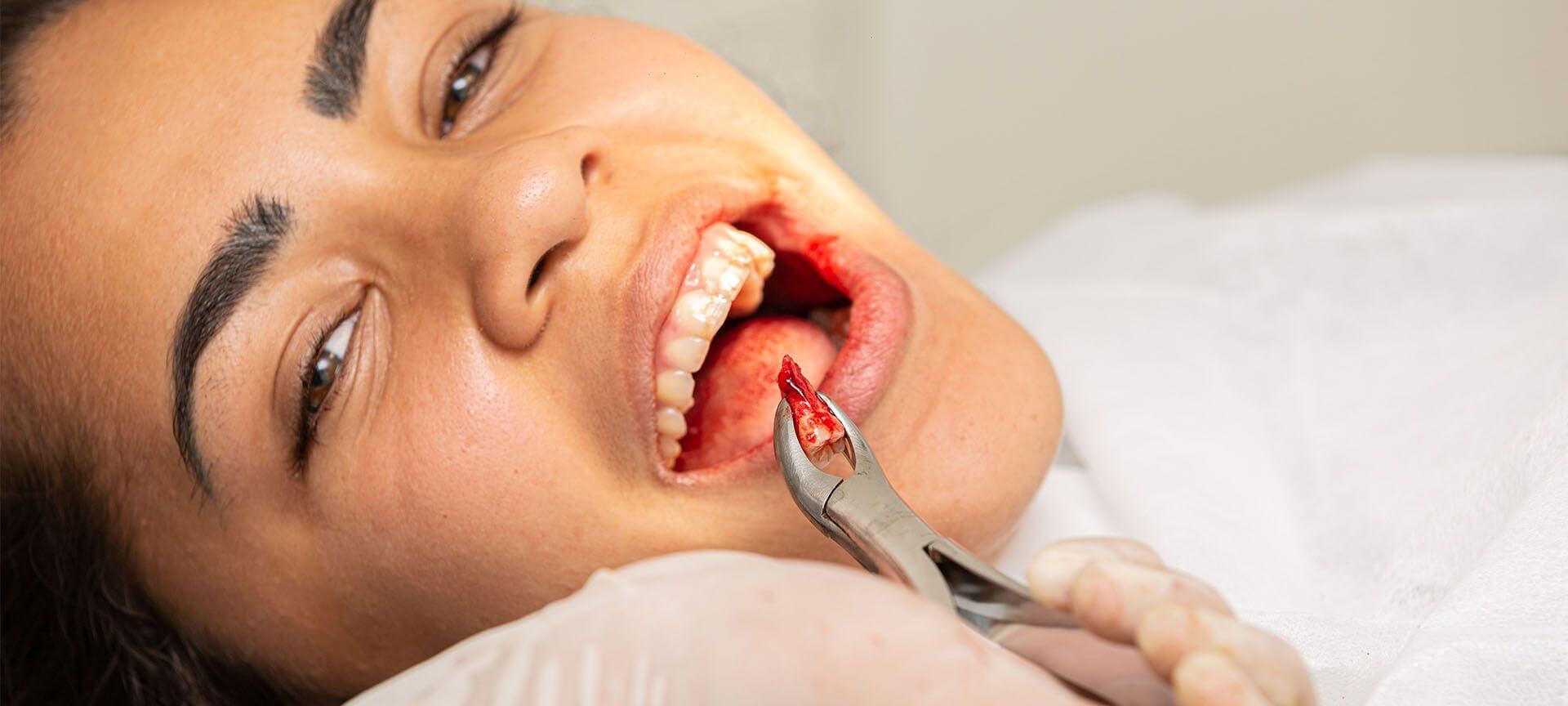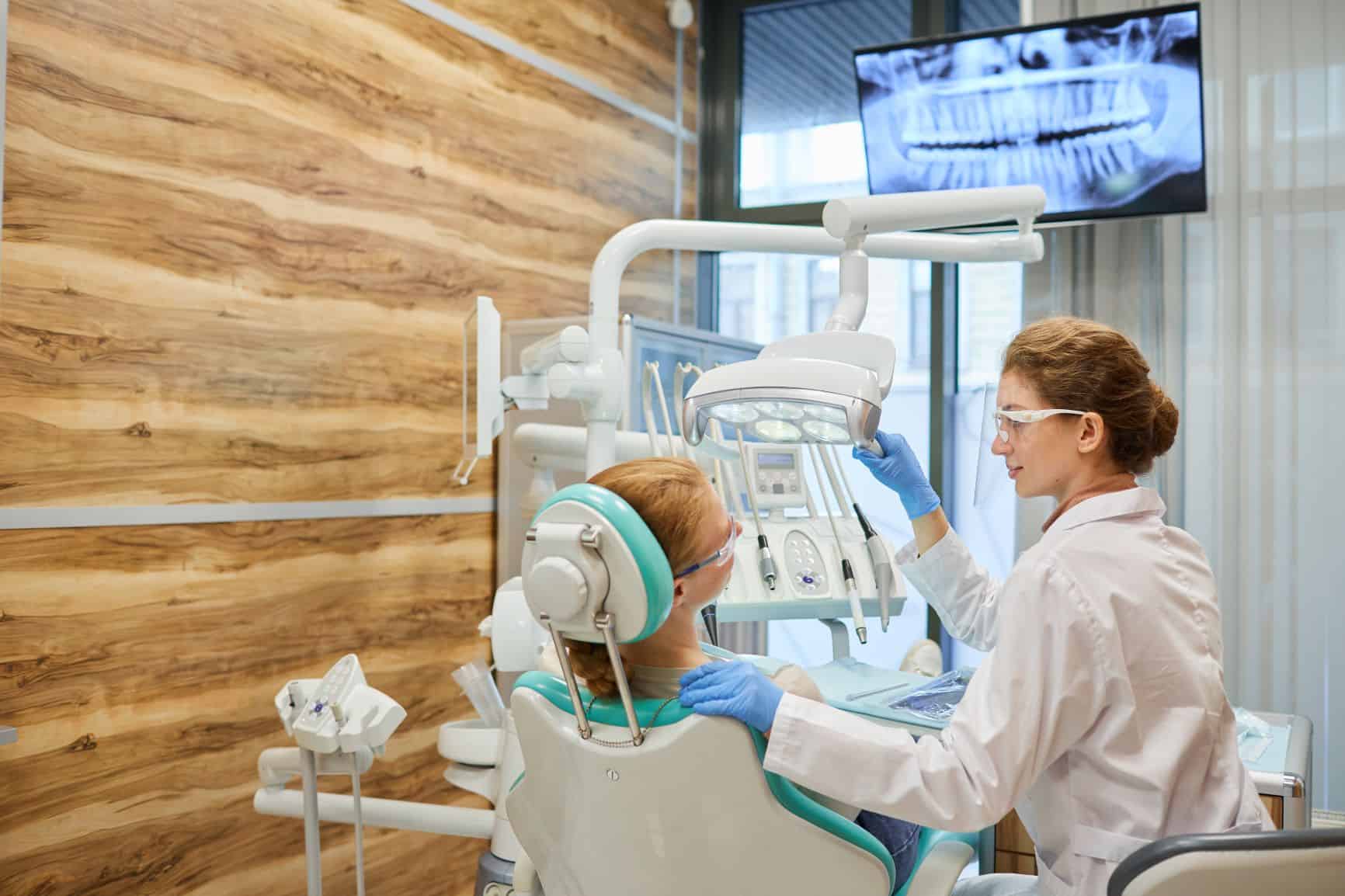Removal of wisdom teeth is a common procedure in modern dentistry and involves taking out one or more of the third molars that are located at the back of the mouth. It is relevant mentioning that the wisdom teeth are also called third molars. Removal of the third molars often involves a surgical procedure in many cases. The wisdom tooth pain has a peculiarity; these are the last four large teeth meant for grinding (or molars) that erupt in the mouth. Usually these teeth come through by the time one is in mid twenties although these may come through earlier as well as later than age mentioned above.
However in many individuals these wisdom teeth do not appear at all whereas in many other cases the teeth do not come through properly. In cases where the wisdom teeth cannot come through properly these are called impacted wisdom teeth and these impacted wisdom teeth often lead to problems. Typical complications resulting from impacted wisdom teeth include infection, pain and swelling. In cases of complications, it is important to extract the wisdom teeth to relief a patient from those symptoms.
The need for having the wisdom teeth removed

Removal of wisdom teeth is not mandatory in every case opines a dentist having years of experience in emergency removal of the wisdom teeth. As such in a large number of people these teeth erupt normally without causing any trouble. But it is important to remember something important, since the wisdom teeth are the last teeth to come through, by the times these appear there is not sufficient space left in the mouth for the teeth to grow properly. As a result the wisdom teeth get easily stuck in the gums or they erupt at an angle unlike the rest of the teeth in the mouth. This is how your impacted wisdom teeth come into existence but every impacted wisdom tooth does not need to be extracted. In fact dentists recommend retaining the impacted wisdom teeth that do not show any symptom or cause any trouble.
However, in some cases it happens that an impacted wisdom tooth comes through an angle or position that makes it easy for the food and harmful bacteria get trapped around the gum. This leads to a condition called pericoronitis in which you suffer from swollen and sore gum along with infection and decay in the tooth. If a patient suffers from any of the symptoms above then dentists recommend extracting the impacted tooth. As far as the UK is concerned, wisdom tooth removal is one of the commonest dentistry procedures. Usually it is done within the age range of late teens or twenties when the wisdom teeth normally come through.
Removal of wisdom teeth – preparation involved
Before deciding on removing your wisdom teeth your dentist will first take an x-ray of your mouth. This helps the dental team know exactly in which position the tooth is placed in the gum. When the exact position is known, a dentist can easily find the best way to take the tooth out safely. Usually extraction of a wisdom tooth pain in jaw happens to be a straight and simple process. The procedure is carried out in a dental practice and the patient is administered with local anaesthesia right at the very beginning.
If the extraction procedure seems to be difficult then your dentist may refer you to a specialist oral surgeon to avoid unnecessary risk and complication. Such complex cases of wisdom teeth extraction are mostly carried out in hospitals and patients are administered with general anaesthesia so that they do not feel the pain and suffering. Before performing the procedure your surgeon or a senior nurse will explain you the matter and will even make you aware about the upcoming pain that you may experience after the procedure. If you have any query to ask or doubt to clear out you must do that during this interaction. When you are fully aware about how the procedure will unfold and what you may feel during its course you are likely to be more at ease. Thus they will have your consent first and then move ahead with the procedure to give your permanent relief from your wisdom tooth symptoms and complications.
Wisdom tooth removal alternatives

In cases that involve high levels of complications dentists perform wisdom tooth removal on emergency basis. However if a wisdom tooth is impacted and still does not cause any problem or complication in those cases dentists prefer to retain that wisdom tooth and leave it as it is. But every case of an impacted wisdom tooth is not that simple. In many cases it is seen that the surrounding nerves of a wisdom tooth are under the risk of getting severely damaged. In those circumstances dentists rely on a procedure called coronectomy. In this procedure the crown of a wisdom tooth is taken out carefully leaving some of the roots absolutely untouched. This lessens the chances of damage of the nerves to some extent or the other.
The procedure of wisdom tooth removal in steps
The procedure of extracting a broken wisdom tooth varies from patient to patient depending on how difficult it is to take out the tooth. Removal of the wisdom teeth in the upper jaw is comparatively easier compared to those in the lower jaws. At the dental practice you will be administered with local anaesthesia before starting the procedure. As a result, you will not feel any pain in the mouth although you will remain awake while the dentist extracts your wisdom tooth pian relief. For nervous patients there is the provision of providing sedation with local anaesthesia. Thus the patients relax while the dentist does his or her duty smoothly.
If your wisdom tooth extraction takes place in a hospital you will probably be under the effect of general anaesthesia and thus will sleep throughout the procedure.
Wisdom teeth removal cost
Wisdom teeth removal is available on the NHS provided it causes pain and discomfort. The cost of the procedure varies across England, Wales, Northern Ireland and Scotland and so it is better to contact a local practice near you to get precise information. The cost of the procedure in private surgeries too varies widely depending upon the level of complexity and qualifications of a dentist. At Emergency Dentists London Pro you can expect transparent pricing along with quick and flawless service. We are located in Bayswater, London and remain open every 7 days a week.



